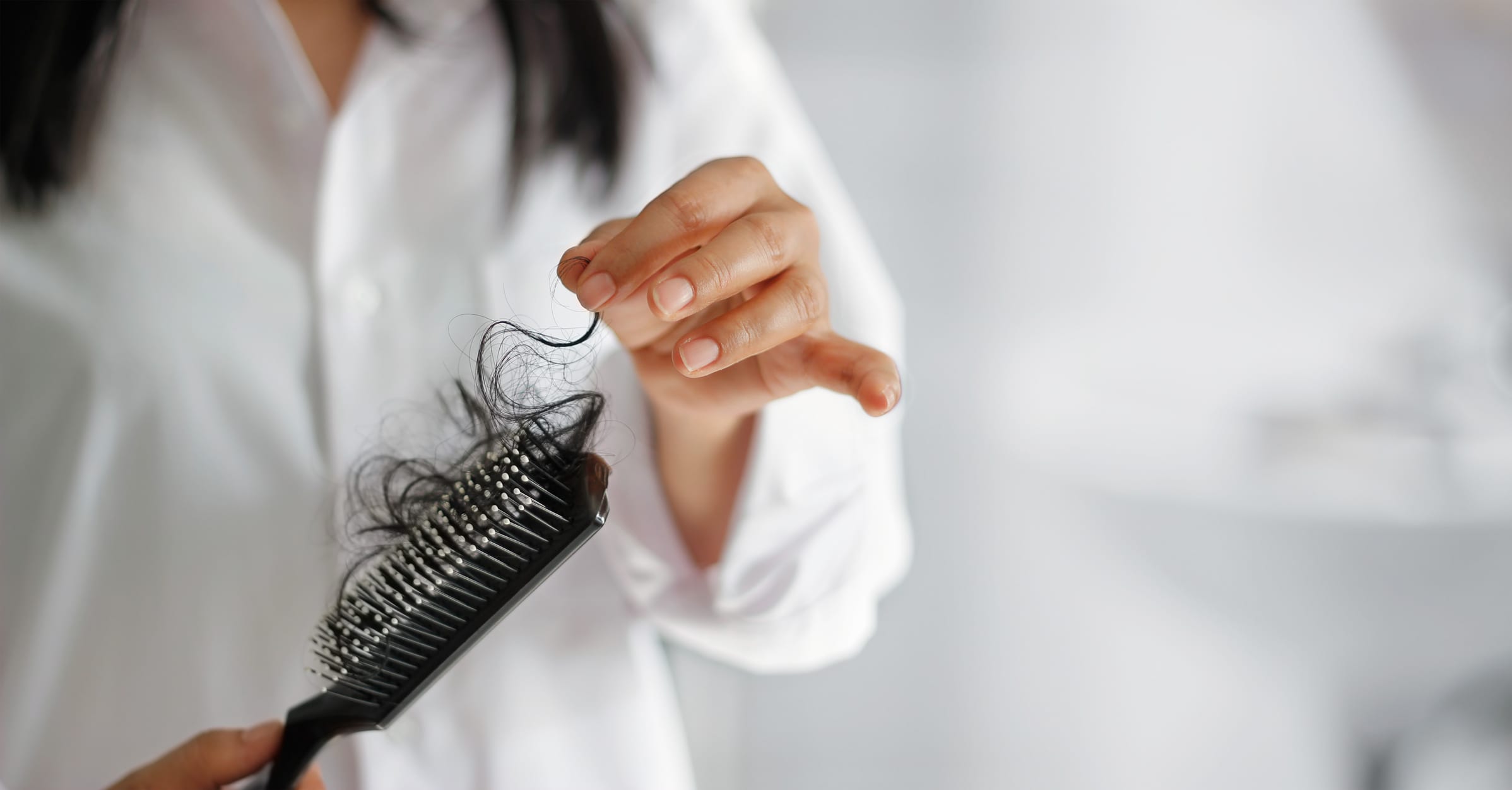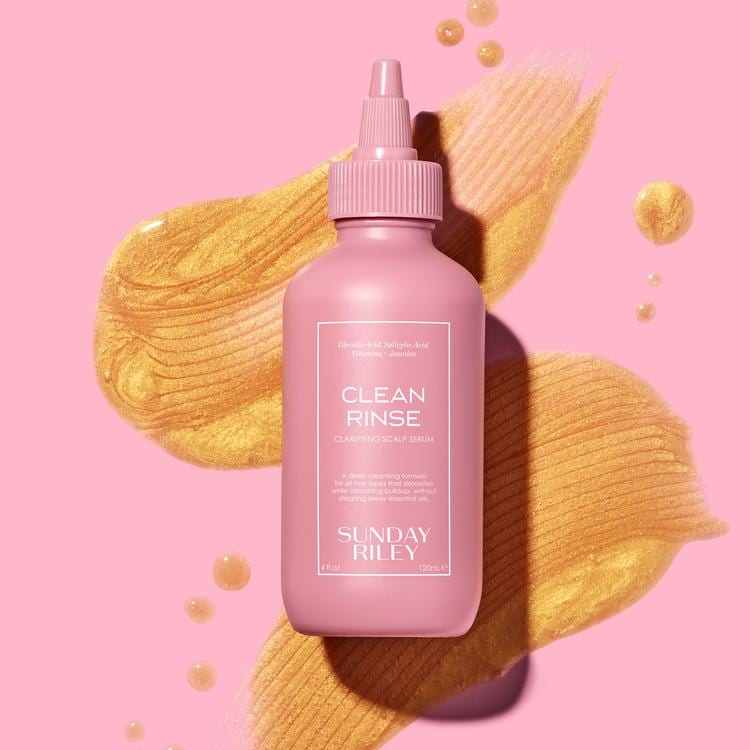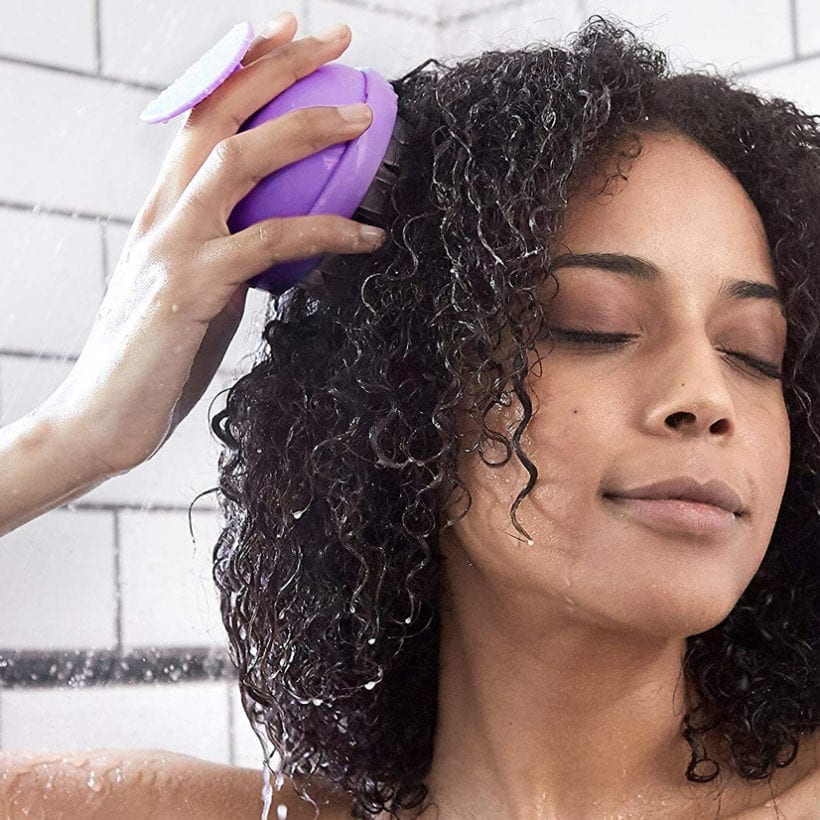The United States has lost over 400,000 Americans to COVID-19 over the past year, and the numbers only continue to rise. Not only does the fear of catching the virus (and potentially dying) consume us all, but the stress of working from home, homeschooling children, and suffering through social isolation has left us feeling incredibly depleted and drained.
Excessive stress can cause a number of symptoms in the body, including indigestion, headaches, acne, insomnia, and hair loss. Unfortunately, hair loss can occur for a number of reasons, but those suffering from COVID-19 (or trying to avoid catching it) have seen a skyrocketing amount of hair loss throughout the year.
“Significant stress can put large numbers of hair follicles into a resting (telogen) phase,” explains Gretchen Friese, a BosleyMD certified trichologist. “This is the third phase of hair growth and the one before the hair sheds (exogen phase). When a larger than normal amount of follicles go into this resting phase, it will force more hair fall in the final stage.”
Types of hair loss
Hair loss is usually diagnosed when there is a visible amount of excessive hair fall. “Over 75-100 strands a day is normal, but anything much more than that should be a reason for concern,” explains Friese. “Some other concerns are when the scalp is suddenly visible or there are patches of hair missing.”
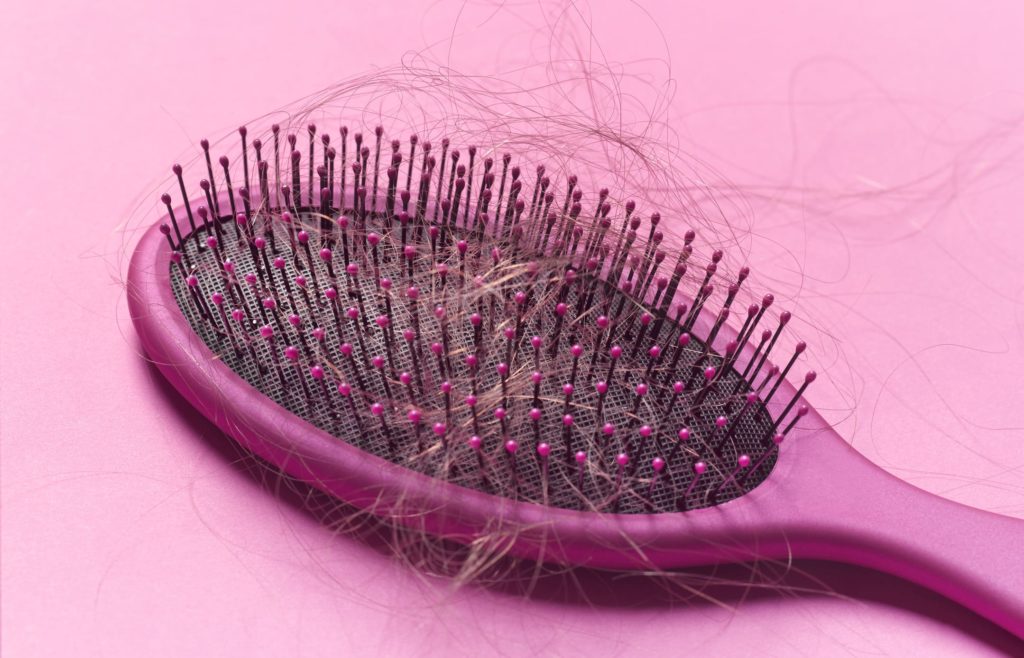
There are multiple types of hair loss that someone can struggle with, but three that specifically relate to stress.
Trichotillomania is defined as an irresistible urge to pull out hair from various parts of your body, including your scalp, eyebrows, or other areas. This type of hair loss can be a way of dealing with emotions, such as anxiety, stress, frustration or loneliness.
Alopecia areata is another type of hair loss that occurs when white blood cells attack the hair follicle, further stopping hair growth and causing hair to fall out. There are a variety of factors that might cause alopecia areata, including severe stress.
Finally, telogen effluvium is a hair loss condition where stress, either emotional or physical, pushes large numbers of growing hairs into a resting phase. After a few months, the hairs might fall out suddenly when you’re washing or combing your hair in the bathroom.
During your exam, the “dermatologist will examine the scalp and perform a hair pull test to look for telogen hairs,” says Dr. Hadley King, a board-certified dermatologist in New York City. “And a scalp biopsy can be performed for more information.”
COVID-19 and hair loss
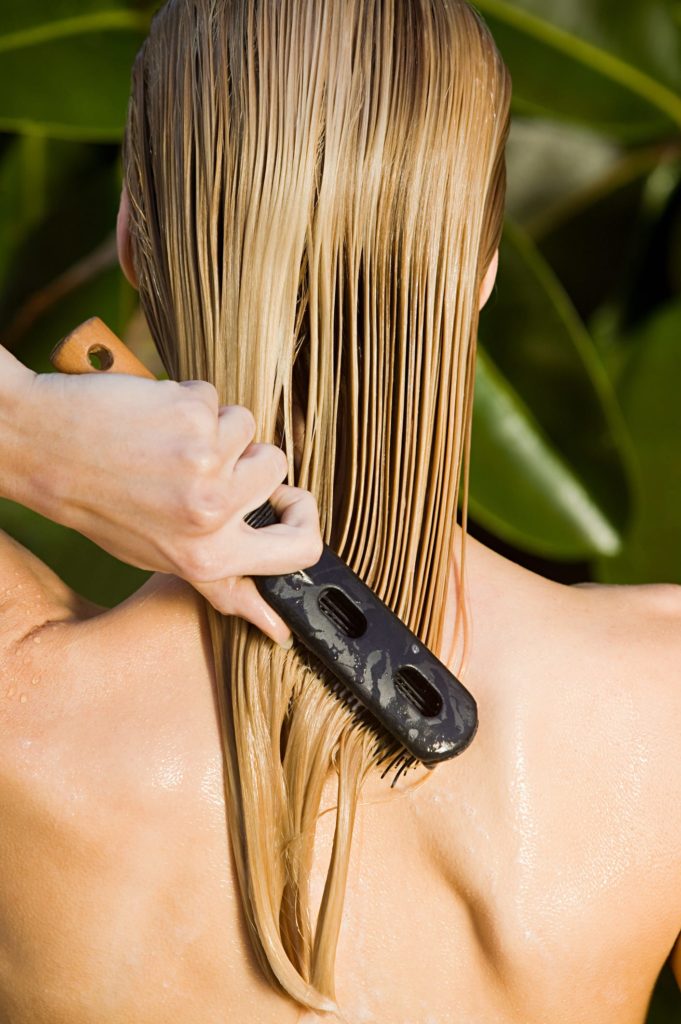
For those who have been diagnosed with COVID-19 (or are experiencing extreme amounts of stress due to the global pandemic), telogen effluvium is the type of hair loss that they have been experiencing.
“Telogen effluvium can take place after a person undergoes a stress to the body or mind such as loss of a loved one, loss of a job, a high fever, a surgery, or an abrupt hormonal change, like after childbirth or stopping an oral contraceptive,” says Dr. King. “Hairs are usually found in all different stages of the hair cycle, but after experiencing this stress, a larger percentage of hairs than usual become synchronized, and so when it is time for them to fall out, many more hairs than normal fall out. Usually, approximately two to four months after the stress, more hairs than usual enter the telogen phase of the hair cycle and fall out.” The good news, though, is that this kind of hair loss is reversible, and it does grow back, according to King.
Another reason for hair loss may be that people aren’t washing their hair as much as needed because they aren’t going anywhere, according to Friese. “A clean scalp is very important to hair health — when the follicles get clogged by oil, free radicals and hair products have a harder time holding on to the hair, which results in hair fall,” she says.
How to treat hair loss
If you’re struggling with hair loss this year, fret not — there are multiple ways that you can prevent further hair loss from happening, both internally and externally.
1.Learning ways to decrease your stress levels is important in avoiding stress-induced hair loss.
“Meditation, prayer, deep breathing practices, and journaling are great options to help with stress in today’s crazy world,” says Friese. “Some people also get pets to help with stress and anxiety — nowadays, when we are more isolated and can’t have as much human interaction, an animal can offer purpose, support and help diffuse loneliness.”
2. Maintaining a healthy diet and exercise routine are also crucial in avoiding stress.
“Crash and fad diets can also cause hair loss, so a well-balanced diet is very important,” says Dr. Gary Goldenberg, a board-certified dermatologist in New York City. Reducing alcohol consumption will also help alleviate anxiety. If your stress levels are extreme, King suggests a referral to a mental health professional when necessary.
3. Try a clarifying scalp product, to help get rid of oils and buildup.
Sunday Riley Clean Rinse Clarifying Scalp Serum is an AHA/BHA-infused, rinse-off serum that helps to clarify the scalp of product buildup, excess oil, dead skin, and pollution for a cleaner, healthier-looking scalp and refreshed hair. This serum features both glycolic acid and salicylic acid to gently exfoliate the surface of the scalp, while niacinamide, vitamin F, and vitamin C complex work to rehydrate the scalp and hair follicles — ideal for those who need a little extra scalp-cleaning these days.
4. If you’re struggling with hair loss due to stress over COVID-19, consider trying hair products or supplements that can help with hair growth.
“For anyone with thinning hair concerns, I recommend using the BosleyMD line of hair care products, which contain clinically proven ingredients (including botanicals) that fight DHT and help create a healthy scalp environment for hair to grow,” says Friese. In general, King recommends products that won’t dehydrate the hair, like sulfate-free shampoos and to minimize heat styling and alcohol-based sprays. “Glycerin-based styling products are good for keeping the hair hydrated,” says King. “Also, avoid traction on the hair, like tight braids or a tight bun.”
5. Include hair supplements with anti-inflammatory and adaptogenic ingredients.
Nutrafol and Viviscal are two hair supplements that have demonstrated statistically significant results in studies, according to King. “Nutrafol includes ingredients that have anti-inflammatory, stress-adaptogenic, antioxidant, and dihydrotestosterone-inhibiting properties,” says King. “The idea is that this combination can address different causes of hair loss — some of the featured phyto-compounds include curcumin, ashwagandha, saw palmetto, and tocotrienols.” Curcumin has anti-inflammatory properties, tocotrienols have antioxidant properties, saw palmetto inhibits dihydrotestosterone, and ashwagandha is an adaptogen that can help decrease stress and cortisol to help keep hair follicles in the growth phase longer.
We only recommend products we have independently researched, tested, and loved. If you purchase a product found through our links, Sunday Edit may earn an affiliate commission.
